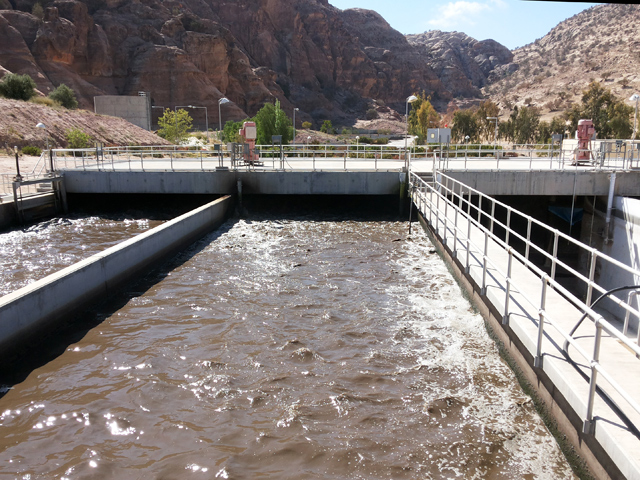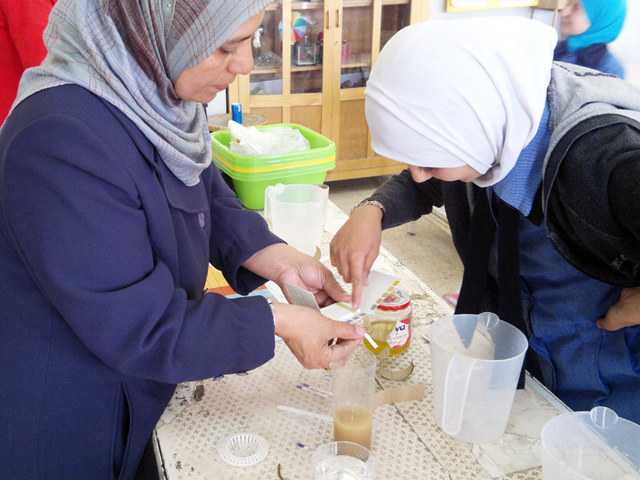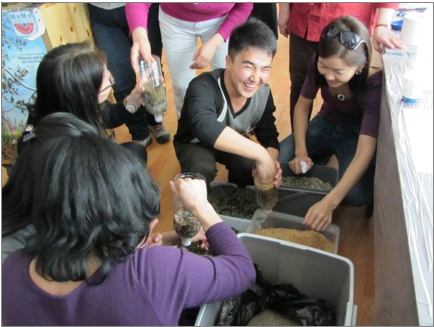Integrated Water Resources Management Approach
Access to drinking water and sanitation are fundamental issues for the quality of life of every person. Both of these aspects are highly interconnected with the issue of water resources. The availability and quality of water sources are among the most important issues for supplying drinking water. But water sources in regions with poor or even no sanitation are usually polluted with human waste, thus leading to negative impacts on human health and the environment. Other sources of water pollution include agricultural activities (due to the infiltration of nutrients and pesticides into groundwater), cattle ranching activities (which generate animal wastes that also pollute water bodies) and wastewater from industry.
Providing drinking water and sanitation – as considered in the United Nations Millennium Development Goals for ensuring environmental sustainability – is a complex task. Alongside water availability and water quality, other aspects need to be considered such as the relationship between water resources and land use, the state of ecosystems, the dynamics of population and water demand, the choice and implementation of suitable technologies, and the development of infrastructure and capacities.
In order to achieve appropriate management and use of water resources, it is necessary to coordinate human activities and take into consideration the interrelationships between the various sectors related to water. Only by integrating social, economic and natural aspects is it possible to achieve equitable and sustainable management of water resources. Such an approach is already recognised at an international level as Integrated Water Resources Management (IWRM).
The German Ministry of Education and Research (BMBF in German) supports the achievement of the United Nations target of halving the proportion of the population without access to drinking water and sanitation by funding projects with the IWRM approach in various emerging and developing countries facing challenges to their water resources (for further information visit BMBF).

The Environmental and Biotechnology Centre (UBZ) at the Helmholtz Centre for Environmental Research (UFZ) and the Training and Demonstration Centre for Decentralised Sewage Treatment (BDZ), both in Leipzig, have been involved in the implementation of two of these IWRM projects, specifically on the topic of decentralised wastewater treatment. These projects were developed for the Lower Jordan Valley (Jordan, Israel and Palestine) and for the Kharaa River Basin (Mongolia).
These two regions are characterised by a very dry climate (evaporation rates are higher than precipitation rates) that dictates low water availability. Alongside the dry climatic conditions, these regions also face similar pressures on water resources such as water pollution and increasing water demand due to a growing population and agricultural development. Against this background, wastewater treatment and reuse possibilities for treated wastewater according to quality standards become crucial components in the improvement of water resources management.
 The UBZ has carried out research on the adaptation of wastewater treatment ecotechnologies according to the specific conditions of each region (constructed wetlands for the Lower Jordan Valley and a willows-based wastewater treatment system for the Kharaa river basin in Mongolia). These types of technologies are characterised by the integration of ecosystem depuration principles (e.g. filtration) and fulfil the need for effective but simple and low-cost technologies.
The UBZ has carried out research on the adaptation of wastewater treatment ecotechnologies according to the specific conditions of each region (constructed wetlands for the Lower Jordan Valley and a willows-based wastewater treatment system for the Kharaa river basin in Mongolia). These types of technologies are characterised by the integration of ecosystem depuration principles (e.g. filtration) and fulfil the need for effective but simple and low-cost technologies.
Wastewater treatment ecotechnologies are used in decentralised wastewater treatment systems and offer an alternative to sewage management in contexts where connection to a central wastewater treatment plant is not a cost-effective solution – for example, small rural settlements located far away from a central wastewater treatment plant.
In the context of these technology alternatives, the UBZ and BDZ have developed several capacity development activities with the aim of increasing awareness, knowledge and acceptance among the population for wastewater treatment and the concept of treated wastewater reuse. The Water fun – hands, minds and hearts on Water for Life! teaching programme has been developed within this specific framework.
